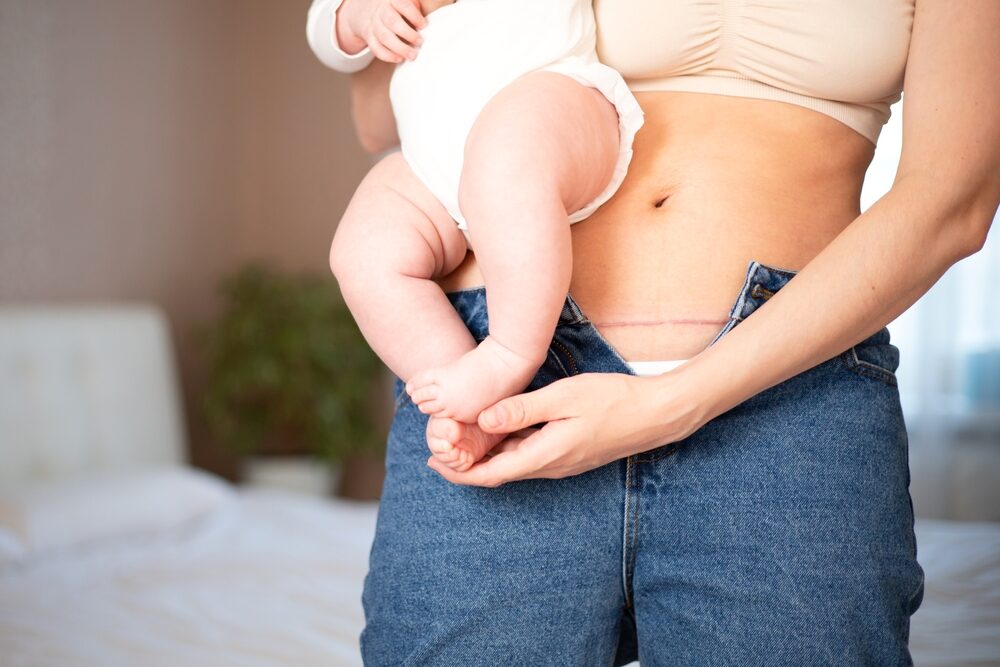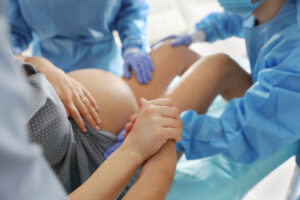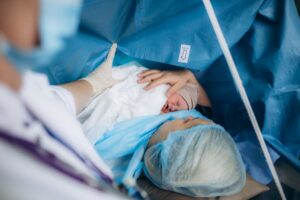
A new Florida law signed by Governor Ron DeSantis gives women who need a cesarean section another option besides having the surgery performed in a hospital.
The law, recognized by the Florida Senate as SB 1016, makes way for doctors to perform the procedure in what are defined as “advanced birthing centers.’’ In this new type of facility, doctors will be permitted to conduct vaginal births and low-risk cesarean deliveries.
While supporters of the law applaud it for giving women a less stringent atmosphere for having their baby via C-section and for being less expensive than a hospital stay, opponents believe having a C-section outside of a hospital puts the woman and child at even greater risk of birth injuries.
The major lobbying group for the law has been Women’s Care Enterprises, a private equity-owned physicians group owned by BC Partners, an investment firm based in London. Women’s Care Enterprises operates as a for-profit company in Florida, California, and Kentucky.
Maternity Wards in Hospitals are Closing
According to a report by the March of Dimes, more than two million women of childbearing age in the U.S. live in areas described as “maternity care deserts” with hospitals that no longer have operating maternity units (also known as maternity wards). Reasons for the decline include the lack of medical personnel, particularly in rural areas, low reimbursement rates from insurance companies, and the nation’s falling birth rate.
Florida has seen 17 hospitals close their maternity wards in the last five years. Closer to home, in Washington D.C., the agency found that in just one year, between 2019 and 2020, there was a 20 percent decrease in the number of hospitals with maternity wards available.
The “maternity care deserts” are a major reason Florida State Sen. Gayle Harrell sponsored SB 7016. Harrell told NBC News that given where the country is with the need “and maternity deserts across the state, this is something that will help us and help moms get the best care.”
Pros and Cons of Advanced Birthing Centers
A cesarean section, or C-section, is the most common surgical procedure in the United States. Each year, more than one million women undergo the procedure which represents one-third of all births in this country.
C-sections, an incision into the abdomen, are often required in cases of emergency. Reasons include an umbilical cord that is prolapsed, a baby in a breech position, or a baby who is too large to pass through the birth canal. Additionally, planned C-sections are performed due to existing medical issues like diabetes, high blood pressure, the presence of herpes simplex, an HIV infection, or if the mother has had a previous C-section.
The Florida law requires advanced birthing centers to have one surgical room and the capability to transfer patients to a hospital if necessary. However, opponents, like Dr. Cole Greves, chair of the Florida chapter of the American College of Obstetricians and Gynecologists, believe these stipulations are not enough to keep a birthing woman and baby safe.
C-sections already have associated dangers including heavy bleeding, infections, endometritis, tearing of the uterine walls, or injury to another organ. If an emergency suddenly occurs, a birthing center facility may not be able to provide swift enough action.
Greves told KFF Health News that the new centers could not guarantee “the level of safety” patients would receive within a hospital.
“A pregnant patient who is considered low risk in one moment can suddenly need lifesaving care in the next,’’ Greves said.
The Concerning Increase in Cesarean Deliveries
As mentioned, the nation’s birth rate is on the decline. However, at the same time, the number of cesarean births, births that by nature put more risk on the mother and child, has been rising.
According to the Centers for Disease Control, just under 3.6 million babies were born in the U.S. in 2023, compared with almost 3.7 million in 2022. Yet, the cesarean delivery rate increased for the fourth year in a row to 32.4 percent in 2023, from 32.1 in 2022. This comes after the C-section rate generally declined from 2009 (32.9%) through 2019 (31.7%). In the Washington D.C. area, there were 7,885 births and the rate of Cesarean births was 34.1 percent in 2023, up from 33.3 in 2022.
Dr. Grace Chen is an obstetrician and gynecologist who has written about cesarean sections for the Global Library of Women’s Medicine. In an article for the New York Times, Chen shared her concern that Florida’s law could cause physicians to “be incentivized” to perform more planned elective cesarean section deliveries due to higher reimbursement rates and the convenience of advance scheduling.
“My worry is it will drive up the C-section rate,” Chen said.
So far, no other state has a law allowing C-sections outside of hospitals, and it is unclear when Florida will see its first advanced birthing center open, or if it will be Women’s Care Enterprises, the key lobbyist for the law, who runs it.
Regardless of where a C-section procedure takes place, labor and delivery negligence can occur causing injuries to the mother or the child, and the effects can be devastating. Mothers could be forced to heal from not just physical injuries but emotional trauma as well. Along with that, a birth injury can impact the overall well-being of the entire family. Mistakes can happen whether the procedure is scheduled or performed as an emergency surgery. Hiring an experienced birth injury lawyer who understands the scope of the difficulties can benefit a victim and their family for years to come.
The Washington DC birth injury lawyers at Paulson & Nace will investigate what caused the injury, help determine if the doctor met the expected standard of care, and fight for the correct compensation for the victim. Contact us to evaluate your case today, or for more information call 202-463-1999 for more information.
@thumbnail.jpg)
Both an Emory School of Law graduate and MBA graduate of Goizueta Business School at Emory, Chris Nace focuses his practice on areas of medical malpractice, drug and product liability, motor vehicle accidents, wrongful death, employment discrimination and other negligence and personal injury matters.














Comments for this article are closed.